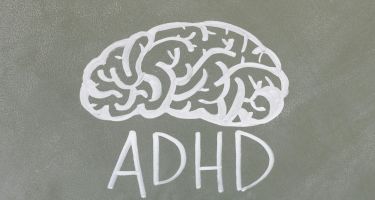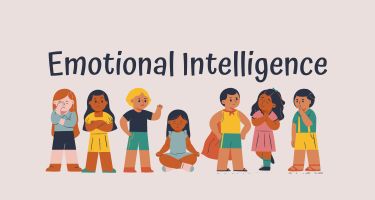Therapy is a powerful tool that helps many people navigate their emotional and psychological challenges. Various psychological approaches, such as cognitive-behavioural therapy and psychodynamic therapy, offer different techniques to help individuals understand their thoughts and behaviours. By exploring these different modalities, we can find the best fit for our unique needs and circumstances.

As we look into the different types of therapy, we’ll discover how each approach offers various strategies to facilitate healing and growth. Engaging with these techniques allows us to unravel the complexities of our experiences and emotions, leading to better mental health. Understanding how these therapies work will empower us to seek the right support when needed.
By recognising the role of therapy in addressing specific disorders, we can see its significance in improving our overall well-being. Familiarity with the outcomes and effectiveness of these approaches further strengthens our ability to make informed decisions about our mental health journey.
Key Takeaways
- Different psychological approaches provide various techniques for healing.
- Understanding these modalities helps us choose the right support.
- Therapy plays a significant role in improving mental health and well-being.
Understanding Psychotherapy

Psychotherapy is an essential tool for improving mental health. It focuses on various techniques to help individuals navigate their feelings and conflicts. We will explore its definition, goals, and common misconceptions that may affect how people view therapy.
Defining Psychotherapy and Its Goals
Psychotherapy, often called talk therapy, involves one-on-one sessions between a therapist and a client. Its primary goal is to enhance mental health by exploring thoughts, emotions, and behaviours. Through open dialogue, therapists help clients understand their struggles and develop coping strategies.
The therapeutic relationship is crucial in this process. Trust and respect between us and our therapist make it possible to dig deeper into personal issues. Ultimately, psychotherapy aims to promote self-awareness, improve emotional well-being, and facilitate personal growth.
Common Misconceptions about Therapy
Many people hold misconceptions about psychotherapy that can deter them from seeking help. One common belief is that therapy is only for those with severe mental illness. In reality, therapy benefits anyone facing life challenges, relationships, or stress.
Another misconception is that therapy is a quick fix. Progress often takes time and requires active participation from both the client and the therapist. We may also think that sharing our problems will lead to instant solutions, but therapy focuses on understanding and addressing underlying issues.
By recognising these misconceptions, we can encourage a more accurate view of psychotherapy. This understanding can help us embrace therapy as a valuable resource for improving our mental health.
Exploring Different Therapy Modalities

In our exploration of therapy, we focus on various modalities that guide therapeutic practices. Each approach has unique principles and techniques, addressing different client needs and situations.
Cognitive-Behavioral Therapy (CBT)
Cognitive-Behavioural Therapy (CBT) is one of the most widely used therapeutic approaches. It centres on the relationship between thoughts, feelings, and behaviours. By identifying negative thought patterns, we can help clients reframe their thinking. This often leads to more positive emotions and behaviours.
CBT typically involves structured sessions where we set specific goals. We may use homework assignments to encourage practice outside of therapy. This modality is effective for various issues, such as anxiety, depression, and phobias. Research shows that CBT can lead to significant improvements in mental health.
Psychodynamic Therapy
Psychodynamic therapy stems from psychoanalytic concepts and focuses on unconscious processes. By exploring past experiences and emotions, we help clients understand how these factors influence their present behaviour. This approach often uncovers hidden patterns and unresolved conflicts.
In our sessions, we encourage open dialogue and reflection. Through this process, clients often gain insights into their emotional struggles. Psychodynamic therapy can be particularly helpful for those facing complex emotional issues. It aims to foster deeper self-awareness and personal growth.
Humanistic Therapy
Humanistic therapy emphasises personal growth and self-actualisation. We believe that everyone possesses an inherent potential for positive change. In this approach, empathy and unconditional positive regard are crucial. We create a safe space for clients to express their thoughts and feelings.
This modality encourages self-exploration and personal responsibility. Techniques like active listening help establish a strong therapeutic relationship. Humanistic therapy can support individuals dealing with self-esteem issues and life transitions. It promotes a holistic view of the person, addressing mental, emotional, and spiritual aspects.
Dialectical Behavior Therapy (DBT)
Dialectical Behaviour Therapy (DBT) is a specific type of cognitive-behavioural therapy designed to help individuals with high emotional sensitivity. We utilise this approach to teach skills in mindfulness, emotional regulation, distress tolerance, and interpersonal effectiveness.
DBT sessions often include a mix of individual therapy and group skills training. This combination helps clients practice skills in real-time. We recognise the importance of validation, emphasising the need to acknowledge feelings while also working toward change. DBT is especially effective for individuals with borderline personality disorder and emotional regulation challenges.
Integrative or Eclectic Therapy
Integrative or eclectic therapy blends different therapeutic approaches to fit individual client needs. We assess each client's unique situation and preferences to create a personalised treatment plan. This flexibility allows us to draw from various modalities, such as CBT, psychodynamic therapy, and humanistic therapy.
In our practice, we might combine techniques from multiple therapies to provide comprehensive care. This approach acknowledges that no single method suits everyone. By adapting our strategies, we can address a wide range of issues effectively. Integrative therapy fosters collaboration between therapist and client, creating a tailored therapeutic experience.
Engaging Therapy Techniques and Practices

In our exploration of therapy, we encounter several techniques that actively engage clients in their healing journey. These practices focus on understanding inner thoughts and feelings, addressing fears, and building coping strategies.
Free Association and Dream Analysis
Free association is a technique where we encourage clients to speak freely about their thoughts, feelings, and experiences. This practice allows hidden emotions and memories to surface, helping us uncover underlying issues.
Dream analysis complements this technique by exploring the symbolic meaning of dreams. We analyse dream content to gain insights into a client’s unconscious mind. This approach can reveal fears, desires, and unresolved conflicts. Both methods are essential in psychodynamic therapy, promoting self-discovery and personal growth.
Exposure Therapy for Anxiety and Phobias
Exposure therapy is a key technique used to help individuals confront their fears. Through gradual exposure to anxiety-provoking situations, we help clients reduce their fear response.
For instance, a person with a phobia of spiders may start by looking at pictures before progressing to a real spider. This step-by-step approach helps desensitise them to their fears. By facing what frightens them in a controlled way, clients learn that their fears are often based on cognitive distortions and unrealistic beliefs, which can be challenged and overcome.
Cognitive Restructuring and Coping Strategies
Cognitive restructuring is a vital part of cognitive therapy. Here, we identify and challenge harmful thought patterns that contribute to anxiety and distress. By replacing negative thoughts with more realistic, positive ones, we help clients build healthier perspectives.
We also introduce practical coping strategies to manage stress and anxiety. Techniques such as mindfulness, deep breathing exercises, and problem-solving skills empower clients. These tools help us navigate daily challenges effectively, ensuring clients feel more equipped to handle their emotions and reactions.
The Role of Therapy in Treating Disorders

Therapy plays a crucial role in addressing various mental health issues. It offers structured support for individuals facing difficulties such as mood disorders, anxiety disorders, personality challenges, and substance-related issues. We can explore how different therapies can effectively address these challenges.
Mood and Anxiety Disorders
Mood and anxiety disorders, including depression and PTSD, are common issues many face. Cognitive Behavioural Therapy (CBT) is often used to treat these conditions. CBT helps us identify negative thought patterns and replace them with healthier ones. This approach can lessen the severity of symptoms.
Additionally, therapies like mindfulness and acceptance commitment therapy focus on developing coping strategies. These methods allow individuals to manage their emotions and reduce anxiety. We see significant improvement in many who engage in these therapies regularly.
Personality and Eating Disorders
Personality disorders, such as borderline personality disorder, can impact relationships and self-image. Dialectical Behaviour Therapy (DBT) is tailored for those with these challenges. It combines cognitive and behavioural techniques with mindfulness strategies, helping individuals manage emotions and interpersonal relations.
Eating disorders, like anorexia and bulimia, require specialised treatment. Therapy can aid in uncovering the underlying issues that lead to disordered eating. This includes exploring body image concerns and triggers. We often utilise a mix of individual and group therapy to provide support and promote recovery.
Substance Abuse and Addiction
Substance abuse and addiction are complex issues that significantly affect lives. Therapy plays a vital role in recovery, often starting with motivational interviewing. This approach helps us understand the individual's desire to change and build confidence in their ability to do so.
Behavioural therapies, such as contingency management, reinforce positive choices. We encourage healthy behaviours while minimising triggers that lead to substance use. Additionally, support groups often complement therapy, providing a community for ongoing encouragement during the recovery process.
Measuring Therapy Outcomes and Effectiveness

Evaluating the success of therapy involves looking at several key factors that reflect a patient’s growth. We can measure outcomes through changes in insight and behaviour, as well as improvements in quality of life and relationships.
Insight and Behavioural Changes
Insight into our thought patterns is fundamental for effective therapy. When we understand the reasons behind our behaviours, we can begin to make lasting changes. This awareness often leads to improved emotional regulation and helps in developing coping skills.
Our approach allows us to track changes in how we react to stress and challenges. For example, many of us report reduced anxiety and enhanced self-esteem as we learn new ways to handle problems. Furthermore, therapy can lead to better interpersonal effectiveness, which helps us navigate social situations and build healthier relationships.
Improvement in Quality of Life and Relationships
The impact of therapy on our quality of life is significant. Many clients notice better mental well-being, which enhances daily living. Improved emotional skills can resolve relationship problems that previously caused distress.
As we develop stronger coping strategies, we see a positive shift in interactions with others. This can translate into deeper connections and less conflict. Therapy fosters understanding and empathy, which are essential for nurturing relationships, ultimately leading to a more fulfilling life.





















